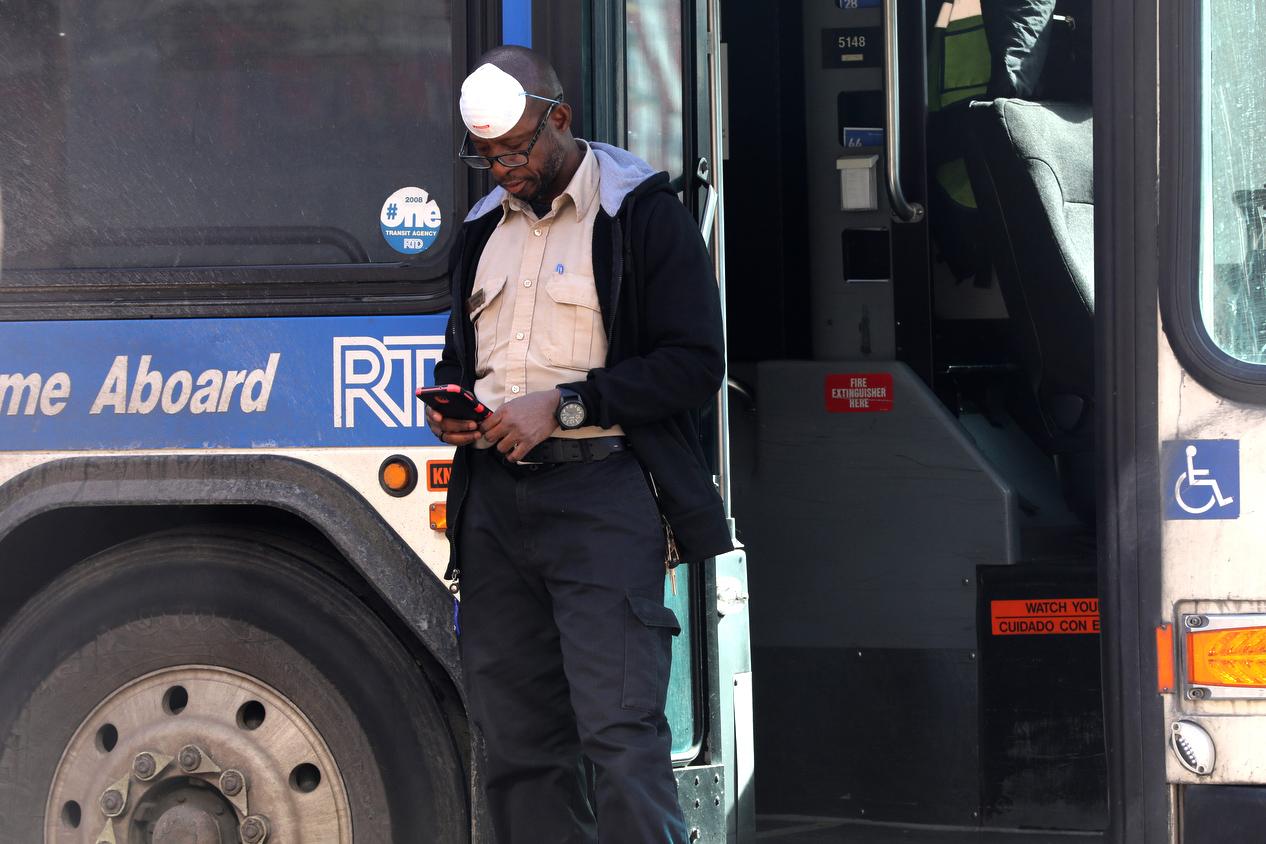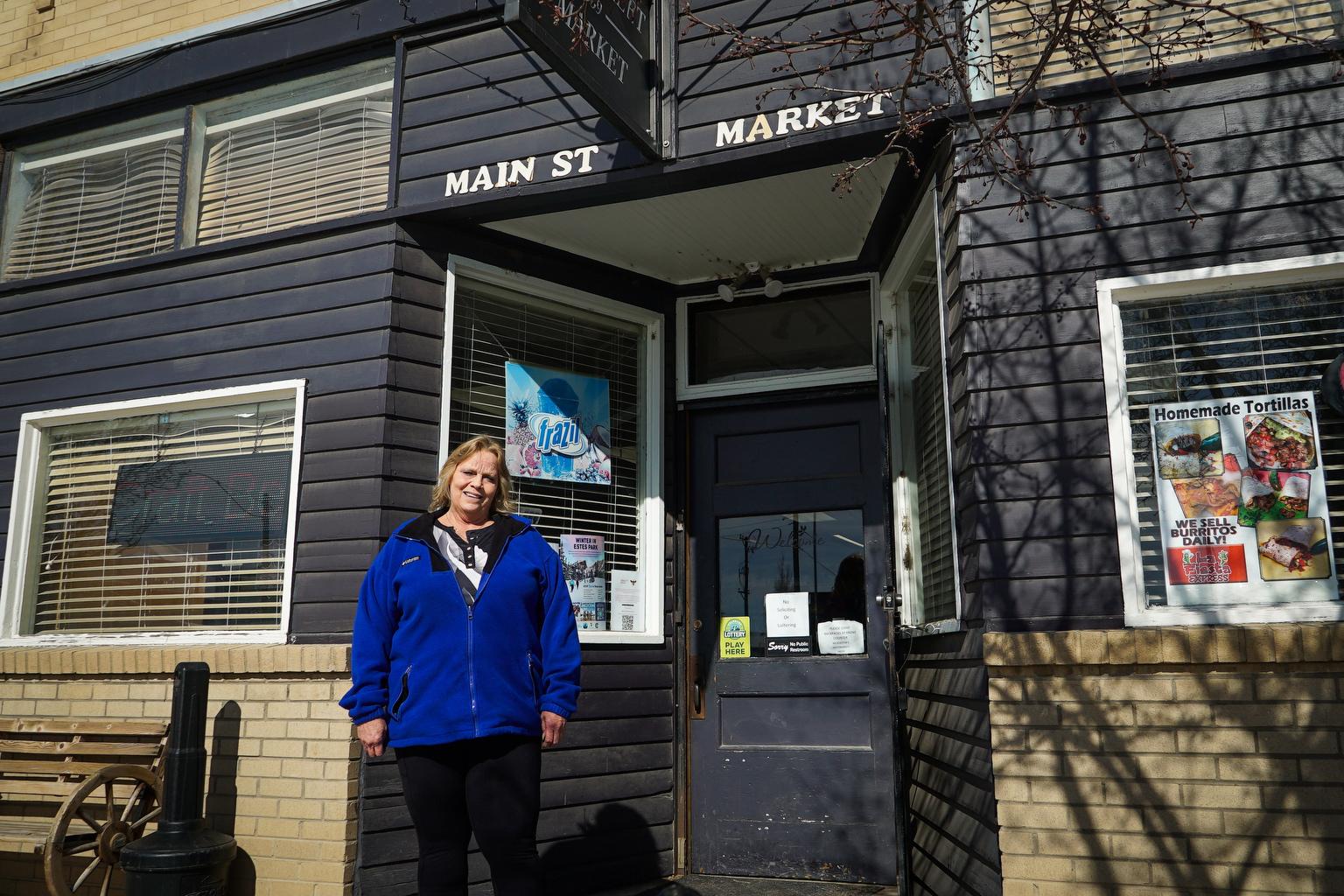
The Regional Transportation District could lose a quarter of a billion dollars in revenue, and potentially more, because of the coronavirus.
That accounts for a significant chunk of RTD’s forecasted total revenue of $1.15 billion in 2020. Most of the transit agency’s revenue comes from a 1 percent sales and use tax levied across the district that was projected to bring in $664 million this year. RTD’s Chief Financial Officer Heather McKillop estimated that could be off by anywhere from $227 million to $280 million.
“That is just a guesstimate right now, based on where we get all of our sales and use tax and looking at what the various industries are saying about their loss of revenue right now,” McKillop told RTD’s board of directors Tuesday.
More precise numbers will come in the next few months, McKillop said. RTD also stands to lose tens of millions of dollars in fare revenue. That was projected to be $158 million in 2020. But it was off by about 50 percent in the month of March and RTD has since stopped collecting fares. Ridership is down at least 70 percent since early March after much of the Denver metro shut down.
The dire financial warning comes as RTD is trying to figure out how to keep buses and trains rolling while also making sure employees and passengers are safe — a task that RTD bus drivers and one board member says agency management is failing to accomplish.
A booster shot of $232 million in federal funding will help RTD cover its costs.
RTD will also see some savings once it cuts service to weekend levels starting April 19 and stops paying drivers overtime, McKillop said. Still, she said, the agency is looking to defer projects to save money.
But RTD has committed to preserving jobs, said Lance Langenbohn, president of the ATU-1001, a union that represents all of RTD’s bus drivers and drivers employed by contractor First Transit.
“At this time, we’re not foreseeing any layoffs or furloughs,” he said. “That was a big commitment from them. They’ve stepped up to the plate.”
RTD spokeswoman Marta Sipeki said that while there is no signed agreement between the two parties, the agency intends to maintain its stable of operators.
“We have worked hard to build up our workforce, and will need operators when ridership returns and we restore service levels,” she said in an email.
Drivers are still worried about their safety, despite recent measures RTD implemented.
Last Sunday, at the urging of the union, RTD started allowing rear-door boarding and waiving fares to keep passengers away from drivers. But board member Shontel Lewis said she was still worried that there weren't enough masks and other protective equipment to keep drivers safe.
"Why are we operating our services if we can't properly protect the people who have put in so much time and loyalty to us?” she asked her fellow board members at a meeting last night.
"Closing down our services would not be serving the public,” replied board member Lynn Guissinger.
While ridership has fallen dramatically, staff say some lines in central Denver are still too crowded for people to maintain the 6 feet of space needed to comply with social distancing guidelines. That worries Lewis, who said RTD should prevent passengers from boarding when buses are too full.
RTD hasn’t done that, despite guidance from the Colorado Department of Public Health and Environment that recommends it. CDPHE also recommends buses be no more than 20 percent full, while RTD’s safety consultant WSP said a 50 percent cap was appropriate.
That difference led to a letter, co-signed by a union representative and five bus drivers, demanding the state of Colorado shut down RTD altogether unless it follows CDPHE’s guidance.
“RTD’s Directors and management have failed frontline transit operators and the riding public with their blasé dereliction of duty,” the letter to Gov. Jared Polis states.
RTD’s drivers are supposed to call for a back-up bus when vehicles are too full, said Fred Worthen, RTD’s assistant general manager for bus operations. But he acknowledged that the buses and operators needed are not always available.
RTD’s Chief Safety Officer Mike Meader said passengers should care for their own safety and not get on crowded buses.
“Everyone really is responsible for their health and safety,” Meader said.
That situation will likely change when RTD reduces service later this month, he said, which will free up resources. But Lewis said those cuts could actually create more crowding.
“If we have empty buses, we could literally deploy those buses to routes that are seeing increases in ridership,” Lewis said. “If on April 19, if we don't have something in place that ensures that people are social distancing, it's only going to exacerbate the problem."
RTD has been trying to buy drivers masks for weeks, said Chief Safety Officer Mike Meader. They managed to secure an order of 25,000 similar KN-95 masks; it is set to arrive on April 20.
"Hopefully they will,” he said, adding that, "We're continually looking at every lead we have, under every proverbial rock, to find these masks."
The ATU-1001 also obtained more than 1,500 masks and is distributing them this week, Longenbohn said. RTD has about a thousand bus drivers and between 150 and 200 light rail operators.
RTD is also planning to cordon off seats near the driver when possible. And it’s even open to receiving cloth masks sewed by members of the public, Meader said.
"If there's anyone out there who's available to help produce those masks, we would greatly appreciate it,” he said.









